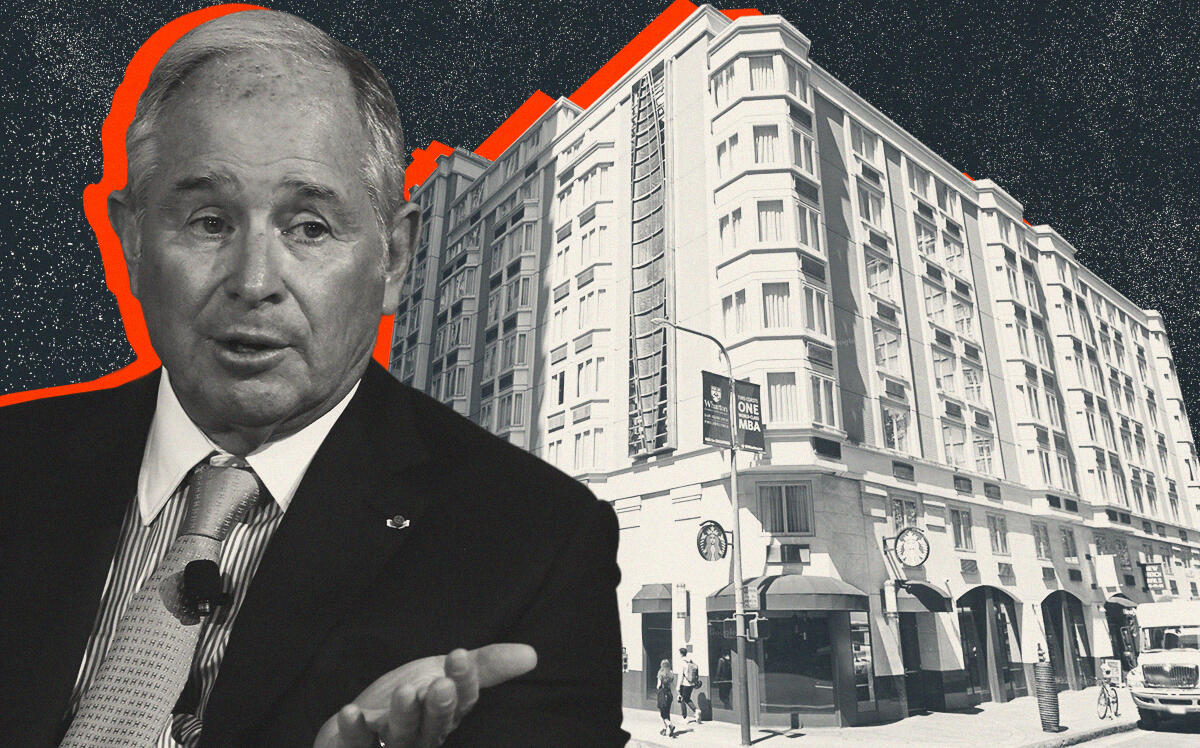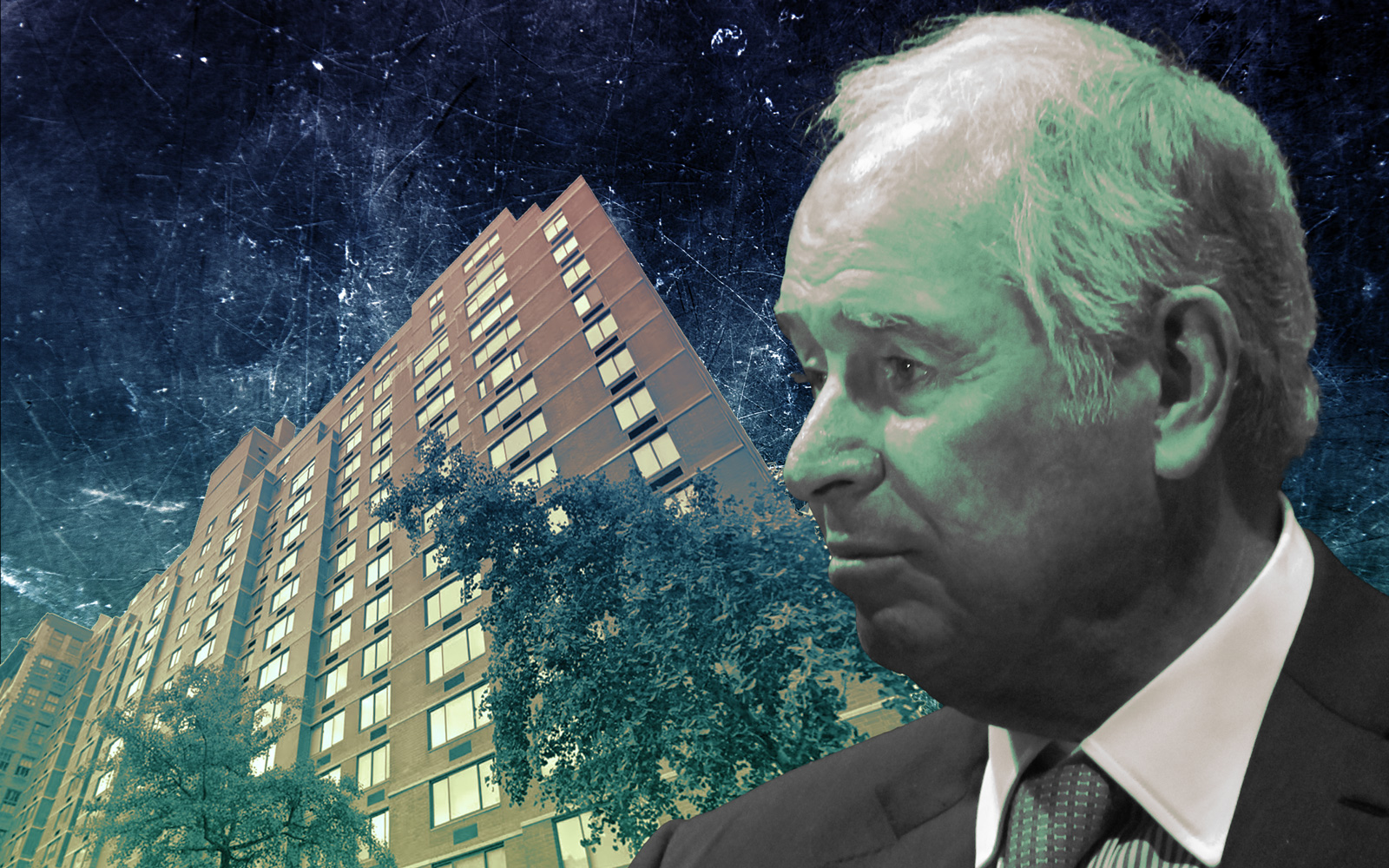An affiliate of the hotel chain Club Quarters is staking out a new position in the lodging network with a discounted purchase of the note to a $61 million mezzanine loan, tied to four struggling Blackstone-owned hotels in the downtowns of major cities.
New York-based Masterworks Development, an affiliate of the Club Quarters operating hotel brand that used to own the hotels, bought the note for the company’s locations in San Francisco at 424 Clay Street and Chicago’s Loop at 111 West Adams Street, as well as Boston and Philadelphia assets operated by the brand.
The mezzanine debt, along with a $274 million senior CMBS loan against the properties, was borrowed by the Blackstone fund Blackstone Real Estate Partners VII in 2017, with the 1,228-room, four-property portfolio serving as collateral. A team led by JLL’s Kevin Davis and Barnett Wu procured Masterworks as the buyer of the mezzanine debt, the brokerage announced Wednesday.
The price Masterworks paid for the note was not disclosed but was less than Blackstone owed under the original terms of the deal, Davis said in an email. The deal illustrates the difficult position hotel players and their lenders — especially those more reliant on business travel — were put in by the pandemic and an inconsistent lodging recovery since it eased.
The Blackstone fund bought the four hotels from Masterworks in 2016 for $283 million.
Blackstone’s $274 million CMBS loan on the portfolio was transferred to special servicer CWCapital in 2020 due to the borrower facing imminent monetary default after it stopped making debt service payments and requested pandemic relief, according to a May 25 report from DBRS Morningstar.
“According to the servicer, Blackstone has advised that it is not willing to inject additional capital to fund operating expenses or debt service payments,” Morningstar said.
Since the first mortgage is in default, Masterworks has multiple options to cash in on its mezzanine investment.
It could potentially initiate a UCC foreclosure that could allow it to take over the Blackstone affiliate that manages the portfolio and then attempt to get the first mortgage on track as the new property owner while the hotel recovery continues. Or it could pursue a solution that lowers Blackstone’s loan service payments enough to let the current owner stay in the deal by allowing it to resume regular payments on the debt package. Blackstone put $8.1 million worth of equity into the portfolio purchase.
“This was a small investment that went into special servicing in the summer of 2020. We continue to cooperate with the parties involved,” a Blackstone spokesperson said in a statement. The investment sits within a successful strategy for Blackstone – the fund recorded a net return of 14 percent in the firm’s latest earnings release.
Masterworks could not be reached for comment on its potential plan for its investment.
The portfolio was appraised in October with a cumulative value of $360 million, a slight bump from May 2021 when it was pegged at $330 million but still down nearly 15 percent from an estimate of $423 million when the loan was issued in 2017, according to Morningstar.
For the 12-month period ending February 28, the four hotels’ penetration rate — a measure of how the portfolio’s occupancy rate and average daily rate compare with the competition — was 77 percent, suggesting that the properties are underperforming relative to their peers.
Still, performance metrics have trended up year-over-year since 2020, Morningstar found, though “it is unlikely the portfolio will stabilize to pre-pandemic figures in the near to medium term.” The distress reflects a familiar arc as hotels dependent on business travelers in Chicago and San Francisco stare down a longer recovery period than lodging geared toward leisure travelers.
The business-oriented hotel portfolio includes the 346-room property in San Francisco, which anchors almost 40 percent of the allocated loan amount, and the 429-room Chicago hotel, which anchors more than 26 percent.
The Chicago property’s performance had declined after the loan was issued in 2017 but before the pandemic, according to Morningstar. The Loop hotel had an occupancy rate of almost 83 percent when the loan was issued, which dropped below 70 percent at the end of 2018, though it rebounded to more than 78 percent by the end of 2019.
Read more



